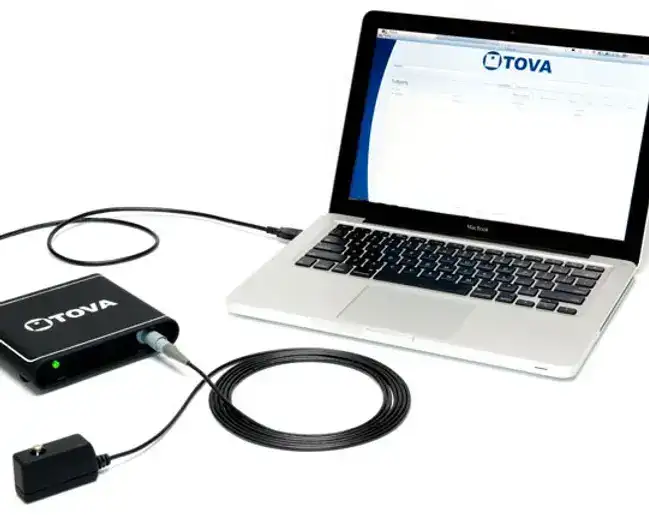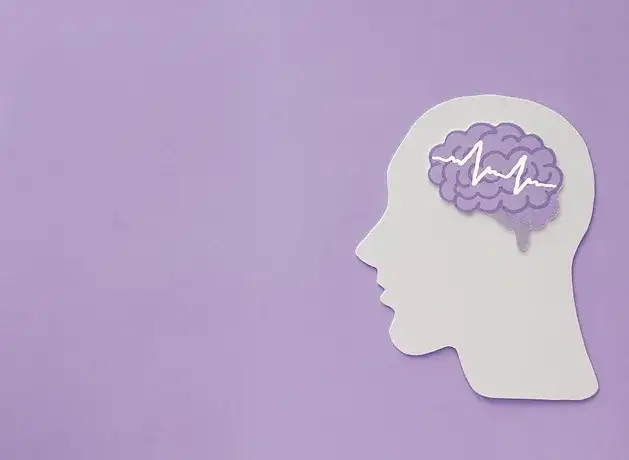ADHD Testing & Evaluation at Reliant Family Psychiatry in Mansfield & Grand Prairie, TX.
Attention deficit hyperactivity disorder (ADHD) is a neurodevelopmental disorder marked by inattention, hyperactivity, and impulsivity. Getting a correct diagnosis of ADHD is crucial because it opens the door to the right support and treatments, helping you better manage your symptoms and enhance your life’s quality.
At Reliant Family Psychiatry, we utilize the Test of Variables of Attention (TOVA), a computerized test designed to assist in diagnosing ADHD. The TOVA measures key aspects of attention like sustained focus, impulsiveness, and the consistency of response times, offering objective insights that support further diagnostic evaluations.


TOVA test for ADHD
TOVA is a continuous performance test (CPT) used to evaluate attention-related difficulties and symptoms associated with ADHD
By presenting visual stimuli and analyzing your responses, it measures the following:
- sustained attention (the ability to maintain focus over time)
- response time variability (consistency of response speed)
- impulsivity (tendency to respond hastily without proper consideration)
- overall attention performance
TOVA then generates performance scores that are used to assess attention-related abilities and aid in diagnosing and treating ADHD
Format of TOVA
The TOVA test is conducted on a computer and includes a variety of visual prompts, often depicted as letters or geometric shapes.
In the TOVA assessment, you’ll watch a computer monitor displaying letters or symbols. You’re instructed to press a button in response to a certain letter, avoiding pressing it for others. This test evaluates your reaction speed, how consistently you respond, and the frequency of mistakes you make.
Signs your child should be tested for ADHD
There are several signs that may indicate a child
should be tested for ADHD. These signs include:
- inattention
- hyperactivity
- impulsivity
- poor academic performance
- behavioral problems (difficulty following rules, acting out, or being disruptive in social situations)
- emotional issues (difficulty managing emotions, frequent mood shifts, or impatience)
- relationship difficulties
TOVA measure
The TOVA assessment evaluates a range of abilities, including:
- Sustained Attention: Determines your capacity to stay focused and attentive for long stretches.
- Response Time: Gauges the speed at which you react to certain prompts during the test.
- Response Time Variability: Measures the consistency of your reaction times, indicating how steadily you can respond.
- Impulsivity: Examines how prone you are to making quick or impulsive decisions without thorough thought.
- Attention Performance: Offers a comprehensive evaluation of your overall attention skills.
The Test of Variables of Attention T.O.V.A
The T.O.V.A. is a medical device that aids in the assessment of, and evaluation of treatment for, attention deficits, including ADHD.
The T.O.V.A. is used by healthcare professionals to measure key variables of attention and inhibitory control that are the building blocks for our ability to focus, think effectively, and develop healthy relationships.
Relation between TOVA & ADHD
The connection between TOVA and ADHD diagnosis lies not in TOVA’s ability to diagnose ADHD by itself but in its role as a supportive diagnostic instrument. It offers quantifiable insights into attention-related capabilities such as prolonged focus and impulsiveness.
Integrating the findings from the TOVA with a detailed assessment—encompassing clinical interviews, observations of behavior, and a review of medical history—allows healthcare providers to achieve a deeper insight into your attention-related abilities. This comprehensive approach facilitates a more precise evaluation of ADHD.

Is TOVA reliable?
TOVA is recognized as a dependable tool for assessment, offering objective, standardized evidence. Studies indicate that individuals with authentic ADHD display distinct responses in Continuous Performance Tests (CPTs) compared to those without ADHD, affirming the validity of these tests. For instance, a 2007 study in Taiwan examined the effectiveness of TOVA in diagnosing ADHD.
It compared the performance of 31 children diagnosed with ADHD against 30 children with typical development, using TOVA alongside the Child Behavior Checklist (CBCL), a widely used psychological survey. The findings revealed that the ADHD group had more variable response times, higher ADHD scores, and increased hyperactivity on the CBCL, leading to the conclusion that TOVA is consistent and offers accurate measures of attention and impulsivity.
Furthermore, a 2019 study investigated the possibility of practice effects with TOVA, which refer to performance improvements due to repeated testing rather than actual attentional changes. This study found no significant score variations over time, indicating that TOVA’s measures of attention are reliable and not susceptible to practice effects.
HOW THE T.O.V.A. WORKS
Grasping how the T.O.V.A. operates is both straightforward and fascinating! Picture this: for the visual segment of the test, various images flash on a screen. Meanwhile, in the auditory segment, you hear beeps through speakers. Your only task is to respond as swiftly and accurately as possible by pressing a simple button.
Here’s what’s interesting about the timing: the visual and auditory segments each last around 21.6 minutes. However, for younger participants, specifically those aged 4 to 5.5 years, there’s a shorter visual test version that takes just 10.8 minutes, ensuring the process is comfortable for them.
In the visual segment, you’ll encounter two types of images on the display. You should press the button for a particular square. During the auditory segment, listen out for two different tones and press the button when the higher tone sounds.
Once the test is complete, T.O.V.A. evaluates your reaction times against average benchmarks to gauge where your responses stand. It also compares your performance to those diagnosed with ADHD. It’s important to remember, though, that these comparisons don’t directly lead to an ADHD diagnosis. Diagnosing ADHD is a task for medical professionals who consider your T.O.V.A. scores as part of a broader diagnostic process. So, view T.O.V.A. as a crucial piece in the larger puzzle of identifying attention and reaction trends!

Discover a brighter mental well-being journey at Reliant Family Psychiatry in Texas!
- We're here to guide you every step of the way. Choose Reliant Family Psychiatry today


